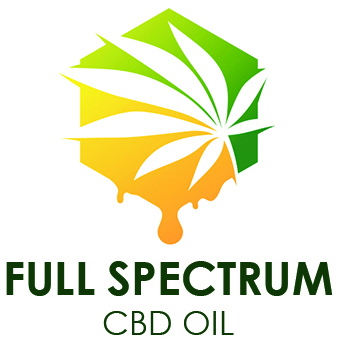Curiosity about the therapeutic properties of CBD oil, a powerful natural remedy, has been skyrocketing. CBD — short for cannabidiol — is a chemical compound derived from the cannabis plant, known for its potential to relieve a wide range of ailments without the “high” typically associated with cannabis. In this comprehensive guide, we’ll break down the science behind this topical health trend.

Understanding the CBD Oil Craze
CBD oil is at the forefront of a wellness revolution that’s reshaping our approach to health. The legalisation of cannabis for medical use in various countries has opened scientific avenues for exploring the benefits of CBD. Derived mainly from the hemp plant, the compound has gained traction for its perceived efficacy in treating numerous health issues. But what exactly is CBD oil, and why is it capturing the interest of health enthusiasts everywhere?
Defining CBD Oil
CBD oil is a concentrated liquid extract derived from the Cannabis sativa plant. Its most abundant cannabinoid is cannabidiol, referred to as CBD. The oil is made by extracting CBD from the cannabis plant, then diluting it with a carrier oil such as hemp seed oil or coconut oil.
Legality and Source
The legality of CBD is complex and varies by jurisdiction. While hemp-derived CBD oil (with less than 0.3 percent THC) is federally legal in the United States, the legality of CBD in all its forms is still a hot topic internationally. It’s important to be aware of the laws in your country and state regarding the purchase and use of CBD products. The source of the CBD oil is critical; high-quality products should be sourced from organically grown hemp and processed using supercritical CO2 extraction.
Unpacking the Benefits of CBD Oil
The appeal of CBD oil lies in its potential to alleviate chronic pain and decrease anxiety, among other widely reported benefits.
Pain Management
One of the most celebrated health benefits of CBD is its analgesic (pain-relieving) effects. It’s thought that CBD interacts with receptors in the brain and immune system, which can help reduce inflammation and alleviate pain. Studies have indicated that a combination of CBD and THC oil can be effective in treating pain related to multiple sclerosis and arthritis.
Anxiety and Stress Relief
CBD’s interaction with the endocannabinoid system, which regulates stress response, is believed to be behind its calming properties. For people with anxiety disorders, CBD may help manage anxiety-triggered responses, including panic attacks.
Improved Sleep Quality
In smaller doses, CBD oil results in increased alertness and decreased daytime sleepiness, which can lead to better night-time sleep. For those suffering from chronic insomnia, only higher doses of CBD have been shown to be more sedative. Over time, regular doses of CBD have been linked to an increase in overall sleep amounts.
Skin Care Benefits
CBD’s anti-inflammatory properties coupled with its ability to regulate oil production make it an appealing treatment for acne. Its ability to reduce sebum production and its anti-bacterial qualities mean that CBD-infused topicals could be a potent ally in your skincare regimen.

Navigating Potential CBD Oil Side Effects
While CBD is generally well-tolerated and considered safe, it can have potentially adverse interactions with certain medications. It’s important to be aware of potential side effects and risks before adding CBD to your wellness routine.
Common Side Effects
Side effects of CBD are rare but can include nausea, fatigue, and irritability. It can also increase levels of the blood thinner coumadin in your blood and could raise levels of certain other medications in your blood by the exact same mechanism that grapefruit juice does.
Medication Interactions
CBD has the potential to interact with a number of prescription drugs. This is because CBD affects the same liver enzymes that are responsible for metabolizing many drugs, which can lead to potentially significant drug-drug interactions, some of which can be life-threatening.
Safety Concerns
Some people shouldn’t take CBD. For example, sone people are not to take it if it could make their liver disease worse. Also, medicinal use of cannabis is still illegal in many places, and recreational use is much more common.
The Right Way to Use CBD Oil
If you’re thinking about incorporating CBD into your lifestyle, it’s crucial to do so responsibly.
Consumption Methods
What is CBD oil good for? CBD oil can be used in various ways, including sublingual tinctures, edibles, vaping, or applied topically. The method of consumption affects how quickly CBD reaches the bloodstream and how long its effects last.
Dosage Recommendations
There’s no one-size-fits-all when it comes to CBD dosage. It varies from person to person depending on factors like body weight, the condition being treated, and the concentration of the CBD product.
Considering Pre-Existing Conditions
If you have pre-existing health conditions or are taking other medications, consult with a doctor before using CBD. Dosage recommendations should take into account any potential interactions with your current treatment plan.
Implementing CBD oil into your health regimen can be a risk-laden process, but for many, the potential benefits far outweigh the potential side effects. The key to ensuring a positive experience is to conduct thorough research, consult with a healthcare professional who is knowledgeable in CBD, and source your products from reputable vendors. CBD’s vibrancy within the wellness industry is indicative of its importance to a broad demographic of consumers, and with careful consideration, could find a valuable place in your approach to a healthful lifestyle.
